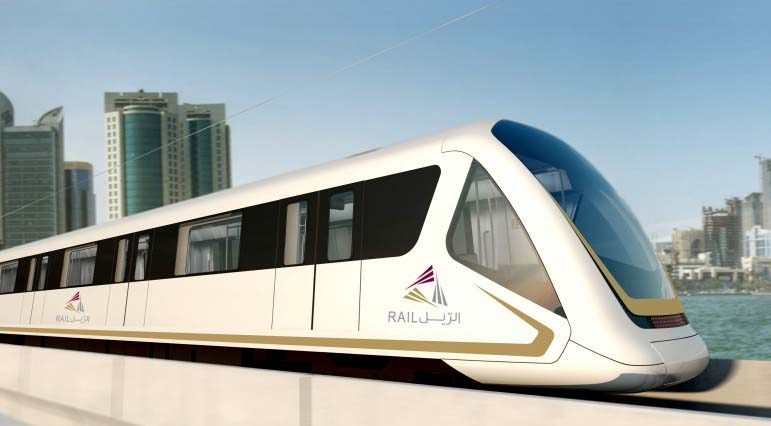
The latest contract awarded by Qatar Rail sheds new light on what passengers will experience while riding the Doha Metro once the system starts operating in 2019.
Coinciding with a weekend visit to Japan by Qatar’s Emir, a consortium of five firms led by Mitsubishi Heavy Industries Ltd. announced on Friday that it had signed a letter of conditional acceptance with Qatar Rail.
The deal includes the sale of railway vehicles, laying of track and various systems including signals, power distribution, telecommunications and tunnel ventilation.
No contract value was disclosed.
The announcement included several tangible details about what future passengers will experience, including:
- Automated fare collections: Thales is one of the five firms in the consortium and provides contactless systems that typically involve passengers pre-paying their fare online or at the station and then holding a card or token up to a sensor at a gate. Thales is also the company that supplied the fare collection system for the Dubai Metro;
- Platform screen doors: Increasingly common in new and retrofitted metro systems, these are separate doors that act as a safety barrier between the platform and the tracks; and
- Trains without human operators, akin to the system built in Dubai.
The order for 75 sets of three-car trains, which will be supplied by Kinki Sharyo Co., is described as “fully automated” and “driverless.”
In addition to Kinki Sharyo, Thales and Mitsubishi Heavy Industries, the full consortium – which will also be responsible for maintaining the system for 20 years after it is completed – includes Mitsubishi Corp. and Hitachi Ltd.
According to Qatar Rail’s website, five companies and joint ventures were invited to bid on the project. Three responded: the winning consortium, German industrial giant Siemens and a JV between Italian transportation firm Ansaldo STS and Spanish railway firm CAF.
Above-ground plans
Separately, another firm announced this weekend that it received a US$79-million contract to act as a project management consultant for the approximately 16km of elevated and ground-level portions of the Doha Metro.
New Jersey-based Louis Berger Egis Rail Joint Venture is already familiar with the project, having previously been named a project management consultant for the Gold Line and major stations in 2012.
The following year, it was commissioned to provide certification services for early enabling works and utility diversions.
The Doha Metro is expected to be fully operational in less than five years. The first phase will consist of four lines:
- The Red Line North, running from a connection with Lusail’s light-rail line to Msheireb via West Bay;
- The Red Line South, running from Msheireb to Hamad International Airport;
- The Green Line, running from Al Rayyan Stadium to Msheireb via Education City; and
- The Gold Line, running from Villaggio Mall to the area around the old Doha International Airport, via Msheireb.
The metro will also connect to two other separate rail projects: The Lusail light-rail line, which contractors say will be operational by 2018 and a long-distance passenger and freight service that will initially run between Education City and Saudi Arabia.
The latter initiative was also supposed to be operational by 2018, but a recent decision by Qatar Rail to restart the prequalification process for would-be contracts is casting doubt upon that timeline.
Thoughts?